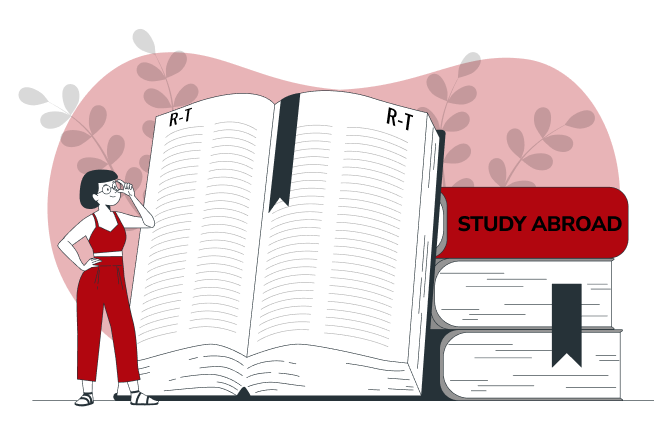QS Rank:

559

Ulster University

Coleraine
,United Kingdom

Program Name
Master's in Human Rights Law and Transitional Justice

Deadline
July 28th, 2023
Overview
The Master of Human Rights Law and Transitional Justice at Ulster University is a distinguished program that empowers students to delve deep into pressing issues of social justice and human rights. This program is designed not only to provide a robust academic foundation but also to equip students with practical skills necessary for effecting change in real-world scenarios. With a curriculum that emphasizes both theoretical and practical knowledge, students will explore complex legal frameworks, historical contexts, and contemporary challenges related to human rights on a global scale.
The program's comprehensive curriculum includes specialized courses such as "Transitional Justice: Theory and Practice," "International Human Rights Law," and "Human Rights in the Digital Age." These courses are structured to foster critical thinking, analytical skills, and the ability to engage with multifaceted issues in human rights law. Students will also have the opportunity to undertake a dissertation project, allowing for in-depth research into a topic of their choosing. This blend of coursework and research ensures that graduates are well-prepared to address the intricacies of human rights advocacy.
Faculty expertise plays a pivotal role in the educational experience at Ulster University. The program boasts a team of distinguished scholars and practitioners with extensive experience in human rights law and transitional justice. Many faculty members actively engage in research and policy-making, offering students unique insights into current developments and best practices in the field. The teaching methodology emphasizes interactive learning, combining lectures with case studies, group discussions, and simulations that replicate real-world legal scenarios. This dynamic approach fosters an engaging learning environment conducive to both personal and professional growth.
Ulster University is committed to providing ample research opportunities and resources for its students. The university houses several research centers dedicated to social justice and human rights, offering students access to invaluable data, archives, and expert networks. Students are encouraged to collaborate on ongoing research projects, which not only enhances their academic credentials but also strengthens their practical skills. Furthermore, the university’s strong ties with numerous NGOs, government agencies, and international organizations facilitate internships and work placements, allowing students to gain hands-on experience and develop industry contacts throughout their studies.
Graduates of the Master’s in Human Rights Law and Transitional Justice program are well-positioned for a variety of career pathways. Many alumni have successfully secured positions within international human rights organizations, governmental agencies, and NGOs, while others have continued their academic pursuits in Ph.D. programs. The average base salary for graduates stands at approximately £40,000, reflecting the program's strong focus on employability. Notable alumni success stories include individuals who have gone on to influence policy, lead significant human rights campaigns, and contribute to groundbreaking research in the field.
Why Study Human Rights Law and Transitional Justice at Ulster University
- A popular choice for international students, fostering a diverse community that enriches the learning experience.
- Learn from world-renowned faculty members who are not only educators but also active researchers and practitioners in the field.
- Access to state-of-the-art research facilities and laboratories, designed to support extensive investigative work in human rights law.
- Excellent career placement programs post-graduation, with strong links to various sectors including non-profit, governmental, and academic institutions.
- Opportunity to engage in impactful internships that provide real-world experience and enhance employability.
- Comprehensive support services for international students, ensuring a smooth transition to life in the UK.

Duration
12 Months

Median Salary
$40,000
Ranking

#850
US World and News Report

#651
The World University Rankings

#559
QS World University Rankings

Intake
Fall ( Sept - Nov )
Class Profile


Want to Know More? 🤔
Sign up now to access detailed information tailored for your study abroad journey.
Start your journeyCareer Outcomes

Median Earnings After Graduation
$40,000 / year
Eligibility Criteria
English Proficiency Tests
PTE
55

TOEFL
80

IELTS
6

Application Requirements
Here's everything you need to know to ensure a complete and competitive application—covering the key documents and criteria for a successful submission.

Transcript

Personal Statement

Academic LOR

Resume
Application Deadlines
| Standard Deadline | |
|---|---|
| Fall | Jul 28, 2023 |
Fees and Funding

Tuition Fees
$15,840 / year
Funding Options
External Sources - Scholarships
Department Funding
Scholarships

The British Council Chevening Scholarship

The Ulster University Human Rights Law and Transitional Justice Masters Scholarship

The Irish Aid Human Rights Scholarship

The United Nations Development Programme (UNDP) Human Rights Fellowship

The Open Society Foundations Human Rights Fellowship
FAQs
A student can complete Human Rights Law and Transitional Justice at Ulster University with in 12.
The deadline to submit an admission application for Human Rights Law and Transitional Justice at Ulster University is Application deadline Fall (Standard Deadline) - date - 28/07/2023
The annual tuition fee to pursue Human Rights Law and Transitional Justice at Ulster University is GBP 15840.
The submission of these scores mainly depends on the type of degree/ course selected at the Ulster University. For example, the GMAT test is required to take admission to an abroad graduate management program, the LSAT is required during an abroad Law School admission process, and more. Therefore, check Ulster University requirements before submitting a score.
Human Rights Law and Transitional Justice can help Indian/ international students gain: 1. Quality and Practical Education 2. Global Recognition 3. International Exposure 4. Amazing Job Opportunities 5. Experience of Lifetime and more
If a student fulfils all the eligibility criteria and admission requirements of Ulster University, they can easily pursue Human Rights Law and Transitional Justice. The basic eligibility criteria include the following: 1. A GPA above 3 2. Well-written Statement of Purpose 3. An impressive Letter of Recommendation 4. A Work Experience Certificate (if required) 5. A Statement of Financial Proof 6. Academic Transcripts 7. Valid Visa, etc.
An MS degree at Ulster University can usually be completed in 2 years. However, many universities offer a 1-year master’s specialisation as well. You can explore the official Ulster University website to check the course/ degree duration.
One can apply for scholarships to pursue their international education at Ulster University by: 1. Looking for country-specific scholarships by contacting the specific scholarship institutions. 2. Applying to or finding out if any subject-specific scholarships are available from the university website/ department.









Ready to elevate your study abroad journey?
Book a call with us now and take the first step towards your global future!
We Value Your Privacy
We use cookies to improve your experience, analyse performance, and personalise content. Learn more in our Privacy Policy.















